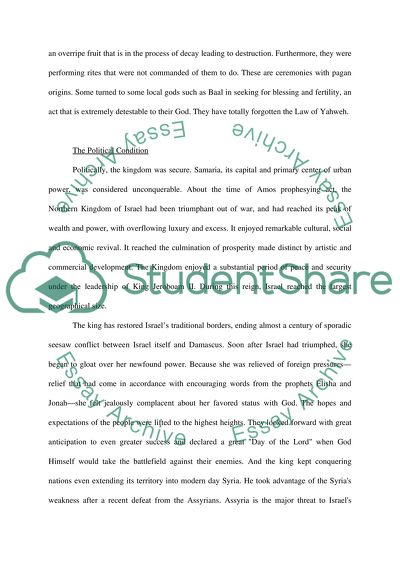Cite this document
(“The Teaching of Amos Essay Example | Topics and Well Written Essays - 1500 words”, n.d.)
Retrieved de https://studentshare.org/religion-and-theology/1501230-the-teaching-of-amos
Retrieved de https://studentshare.org/religion-and-theology/1501230-the-teaching-of-amos
(The Teaching of Amos Essay Example | Topics and Well Written Essays - 1500 Words)
https://studentshare.org/religion-and-theology/1501230-the-teaching-of-amos.
https://studentshare.org/religion-and-theology/1501230-the-teaching-of-amos.
“The Teaching of Amos Essay Example | Topics and Well Written Essays - 1500 Words”, n.d. https://studentshare.org/religion-and-theology/1501230-the-teaching-of-amos.


